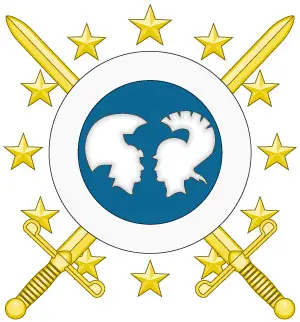After several months of delay, on the 30th of March 2023, Turkey’s Parliament voted unanimously to officially allow Finland’s membership into the North Atlantic Treaty Organization (NATO). This event represents a major shift in the international balance of power, with Finland abandoning decades of non-alignment to become the 31st member of the Western defence alliance (Erlanger, 2023). Though it should be noted that the membership will only be formalized during the next NATO summit, taking place in July in Lithuania (Gardner, 2023).
Turkey was the last NATO member to ratify Finland’s membership due to concerns raised by the Turkish President Recep Tayyip Erdogan about arms exports and support for Kurdish groups from Finland. Turkey repeatedly accused the Finnish and the Swedish governments of providing military and economic support to the Syrian Kurdish People’s Protection Units (YPG), a military unit affiliated to the Kurdish-led Syrian Democratic Forces (SDF).
Since Ankara has always regarded the YPG as a terrorist organization, the possibility of Sweden and Finland as new NATO members had initially been ruled out by the Turkish presidency (Gardner, 2023). Despite this, after a number of consultations and institutional developments, Turkey softened its stance on Finland’s accession and opened the door for its official membership. However, the Turkish opposition to Sweden’s membership has not changed because of the Swedish refusal to extradite to Turkey several suspected Kurdish terrorists (Kottasova, 2023).
Finland and Sweden asked to join NATO as a response to last year’s Russian invasion of Ukraine. Fearing the same fate as Ukraine, Finland’s leaders decided to apply for NATO membership to obtain NATO’s well-established security guarantees and military support in case of a Russian attack (Chatterjee, 2023). Moreover, for NATO, Finland’s membership represented an added value in terms of military capability and strategic geography while also being a diplomatic defeat for President Vladimir Putin, who made clear his intention of further blocking NATO’s expansion eastward (Erlanger, 2023).
The United States and other NATO members have cheered Finland’s almost complete admission and are hoping for a speedy ascension of Sweden’s membership as well. In this regard, former Finnish Prime Minister Sanna Marin declared unconditional support to the Swedish as a long-lasting partner, remarking on the importance of interstate solidarity for security purposes (Erkoyun et al, 2023).
About the Author
Giulia Pavan holds a Bachelor’s degree in Philosophy, International Studies and Economics from the University of Venice. She is currently a Master’s student in International Relations and European Studies at the University of Florence and a Finabel Research Trainee.
References
Chatterjee P. (2022, June 29). Sweden and Finland’s journey from neutral to Nato. BBC News. Retrieved March 31, 2023, from https://www.bbc.com/news/world-europe-61397478
Erlanger S. (2023, March 31). Finland Clears Last Hurdle to Joining NATO. New York Times. Retrieved March 31, 2023, from https://www.nytimes.com/2023/03/30/world/europe/finland-nato-turkey.html
Erkoyun E. & Ozkan, M. (2023, March 31). Turkish parliament ratifies Finland’s NATO accession as Sweden kept waiting. Reuters. Retrieved March 31, 2023, from https://www.reuters.com/world/europe/turkish-parliament-approves-finlands-nato-accession-2023-03-30/
Kottasova I. (2023, March 31). Turkey approves Finland’s NATO application, clearing the last hurdle. Sweden is still waiting. CNN. Retrieved March 31, 2023, from https://edition.cnn.com/2023/03/30/europe/turkey-vote-finland-nato-membership-intl/index.html
Gardner F. and Durbin A. (2023, March 31). Turkey approves Finland Nato membership bid. BBC News. Retrieved March 31, 2023, from https://www.bbc.com/news/world-europe-65132527


